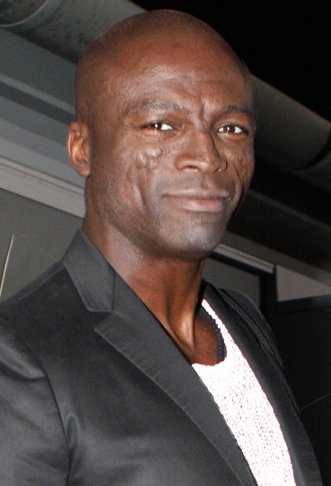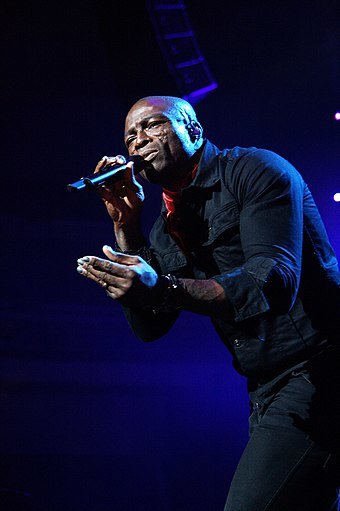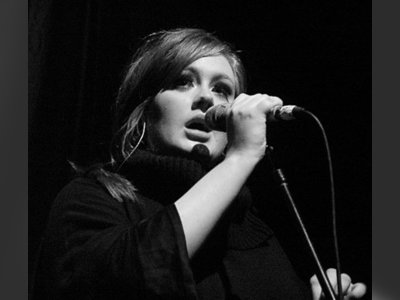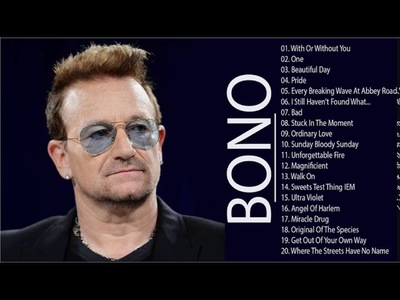British Heritage
Remember, Cherish, Learn.
beta
Seal
Contribution of Seal to British Heritage.
Seal, born Henry Olusegun Adeola Samuel, has made significant contributions to British heritage through his successful music career and artistic achievements. As a British singer-songwriter, Seal's soulful and distinctive voice has resonated with audiences worldwide, earning him a place among the most celebrated artists in the music industry.
Born on 19th February 1963 in Paddington, London, to a Nigerian mother and an Afro-Brazilian father, Seal's multicultural background has influenced his musical style and lyrics. Raised by a foster family in Westminster, London, he pursued an education in architecture and worked various jobs before finding his true passion in music.
In the 1980s, Seal began his musical journey by singing in local clubs and bars. He later joined the British funk band, Push, and toured with them in Japan. After a soul-searching journey through India, he returned to England and collaborated with producer Adamski, providing vocals for the 1988 hit single "Killer," which reached number one on the UK charts. This marked the beginning of his rise to fame.
Seal's self-titled debut album, released in 1991 under ZTT Records and produced by Trevor Horn, was met with critical acclaim and commercial success. The album included hit singles such as "Crazy," "Future Love Paradise," and his collaboration with Adamski, "Killer." His soulful and emotive singing style captivated audiences, earning him a devoted fan base.
The 1992 Brit Awards solidified Seal's position as a British music icon when he won a historic hat-trick of awards: Best British Male, Best British Video for "Killer," and Best British Album for "Seal." These accolades cemented his place in British music history and highlighted his immense talent and contribution to the country's musical heritage.
Seal's second eponymous album, released in 1994, featured the iconic single "Kiss from a Rose." Initially a modest success, the song gained immense popularity when it was included in the soundtrack of the movie "Batman Forever." It went on to win the Grammy Awards for Record of the Year and Song of the Year in 1996, becoming Seal's most successful single to date.
Throughout his career, Seal's albums showcased his evolution as an artist, experimenting with different styles and genres while maintaining his signature soulful sound. His albums "Human Being" (1998) and "Seal IV" (2003) received positive reviews and contributed to his sustained success in the music industry.
Seal's contributions to British heritage extend beyond his musical achievements. As a coach on "The Voice Australia" in 2012 and 2013, he showcased his mentoring abilities, nurturing young talent and passing on his musical expertise to the next generation of artists.
His philanthropic endeavors also reflect his commitment to making a positive impact. He participated in charity events like The Freddie Mercury Tribute Concert in 1992 and performed in fundraisers for causes like Hurricane Katrina relief efforts.
Seal's personal life has also drawn public attention, especially his high-profile marriage to German model Heidi Klum, with whom he has four children. Despite their eventual divorce, their public displays of love and renewal of vows became a symbol of enduring commitment.
Beyond the music world, Seal's facial scars, resulting from a type of lupus called discoid lupus erythematosus, have made him an inspiring figure, encouraging self-acceptance and challenging societal beauty standards.
Seal's exceptional talent, soulful voice, and musical contributions have left an indelible mark on British heritage. From his early rise to fame with hits like "Crazy" and "Killer" to the iconic success of "Kiss from a Rose," he has earned his place among the most influential British artists of all time. Moreover, his charitable efforts and dedication to mentoring young talent showcase his commitment to making a positive impact on the world. Seal's legacy will continue to resonate with music enthusiasts and shape the cultural fabric of British heritage for generations to come.
Early Life and Career
Born on 19th February 1963 in Paddington, London, to a Nigerian mother and an Afro-Brazilian father, Seal's multicultural background has influenced his musical style and lyrics. Raised by a foster family in Westminster, London, he pursued an education in architecture and worked various jobs before finding his true passion in music.
In the 1980s, Seal began his musical journey by singing in local clubs and bars. He later joined the British funk band, Push, and toured with them in Japan. After a soul-searching journey through India, he returned to England and collaborated with producer Adamski, providing vocals for the 1988 hit single "Killer," which reached number one on the UK charts. This marked the beginning of his rise to fame.
Rise to Fame and International Success
Seal's self-titled debut album, released in 1991 under ZTT Records and produced by Trevor Horn, was met with critical acclaim and commercial success. The album included hit singles such as "Crazy," "Future Love Paradise," and his collaboration with Adamski, "Killer." His soulful and emotive singing style captivated audiences, earning him a devoted fan base.
The 1992 Brit Awards solidified Seal's position as a British music icon when he won a historic hat-trick of awards: Best British Male, Best British Video for "Killer," and Best British Album for "Seal." These accolades cemented his place in British music history and highlighted his immense talent and contribution to the country's musical heritage.
Breakthrough with "Kiss from a Rose"
Seal's second eponymous album, released in 1994, featured the iconic single "Kiss from a Rose." Initially a modest success, the song gained immense popularity when it was included in the soundtrack of the movie "Batman Forever." It went on to win the Grammy Awards for Record of the Year and Song of the Year in 1996, becoming Seal's most successful single to date.
Artistic Evolution and Continued Success
Throughout his career, Seal's albums showcased his evolution as an artist, experimenting with different styles and genres while maintaining his signature soulful sound. His albums "Human Being" (1998) and "Seal IV" (2003) received positive reviews and contributed to his sustained success in the music industry.
Legacy and Awards
Seal's contributions to British heritage extend beyond his musical achievements. As a coach on "The Voice Australia" in 2012 and 2013, he showcased his mentoring abilities, nurturing young talent and passing on his musical expertise to the next generation of artists.
His philanthropic endeavors also reflect his commitment to making a positive impact. He participated in charity events like The Freddie Mercury Tribute Concert in 1992 and performed in fundraisers for causes like Hurricane Katrina relief efforts.
Personal Life and Impact
Seal's personal life has also drawn public attention, especially his high-profile marriage to German model Heidi Klum, with whom he has four children. Despite their eventual divorce, their public displays of love and renewal of vows became a symbol of enduring commitment.
Beyond the music world, Seal's facial scars, resulting from a type of lupus called discoid lupus erythematosus, have made him an inspiring figure, encouraging self-acceptance and challenging societal beauty standards.
Conclusion
Seal's exceptional talent, soulful voice, and musical contributions have left an indelible mark on British heritage. From his early rise to fame with hits like "Crazy" and "Killer" to the iconic success of "Kiss from a Rose," he has earned his place among the most influential British artists of all time. Moreover, his charitable efforts and dedication to mentoring young talent showcase his commitment to making a positive impact on the world. Seal's legacy will continue to resonate with music enthusiasts and shape the cultural fabric of British heritage for generations to come.
- Seal (musician)en.wikipedia.org







